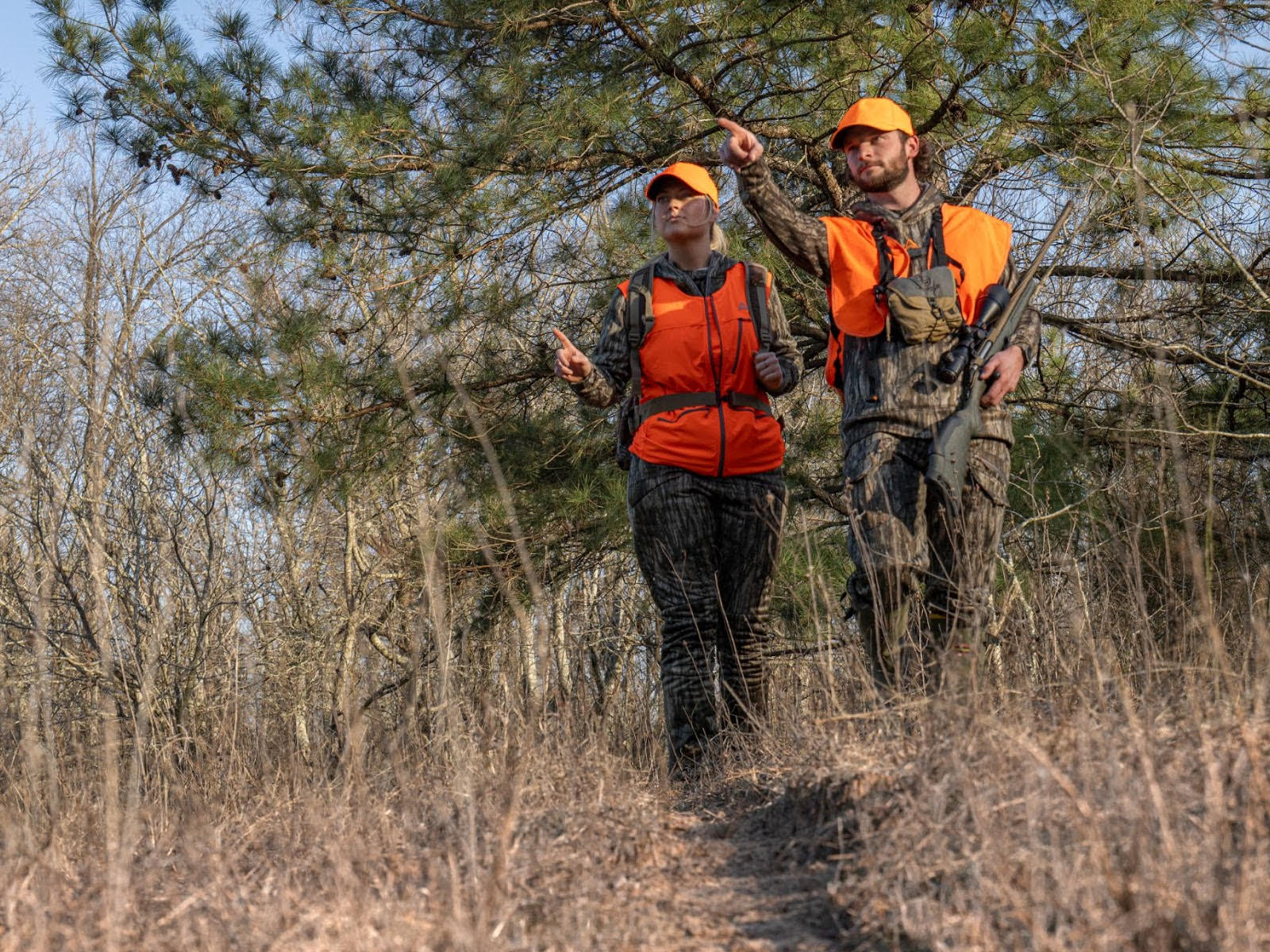Summer heat means more catch and keep
ON 07-03-2025
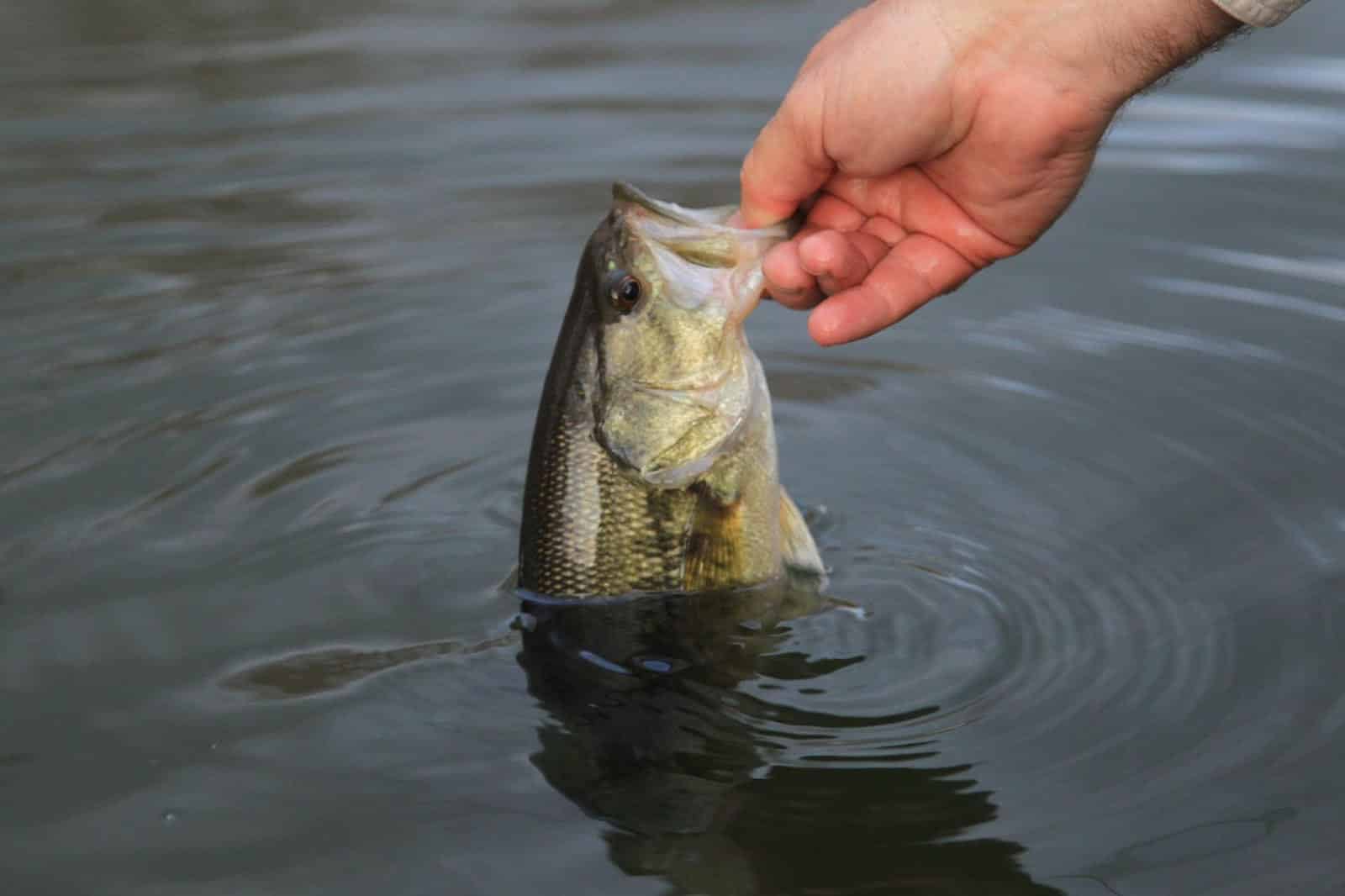
LITTLE ROCK — Catch-and-release is the mantra for many anglers pursuing bass, trout and other sport fish, but as the temperature continues to rise in summer, anglers may want to consider keeping a couple for the frying pan or limiting their angling activities to the coolest parts of the day.
The dog days of summer aren’t just hot above the surface; surface water temperatures on most ponds and lakes in the state are regularly hitting the mid-80s with an occasional foray into the 90-degree range. Hot water doesn’t hold nearly as much oxygen as cooler water, and the added temperature increases stress on fish, regardless of oxygen content.
“We suggest fishing tournaments shy away from those July through early September times when the water temperatures are too warm, or at least switch to reduced tournament hours or reduced tournament limits,” Jeremy Risley, Black Bass Program Coordinator for the Arkansas Game and Fish Commission, said. “If you can do a catch-weigh-release format tournament where you’re not stressing fish with a day in the livewell, you can do that to help a little, too.”
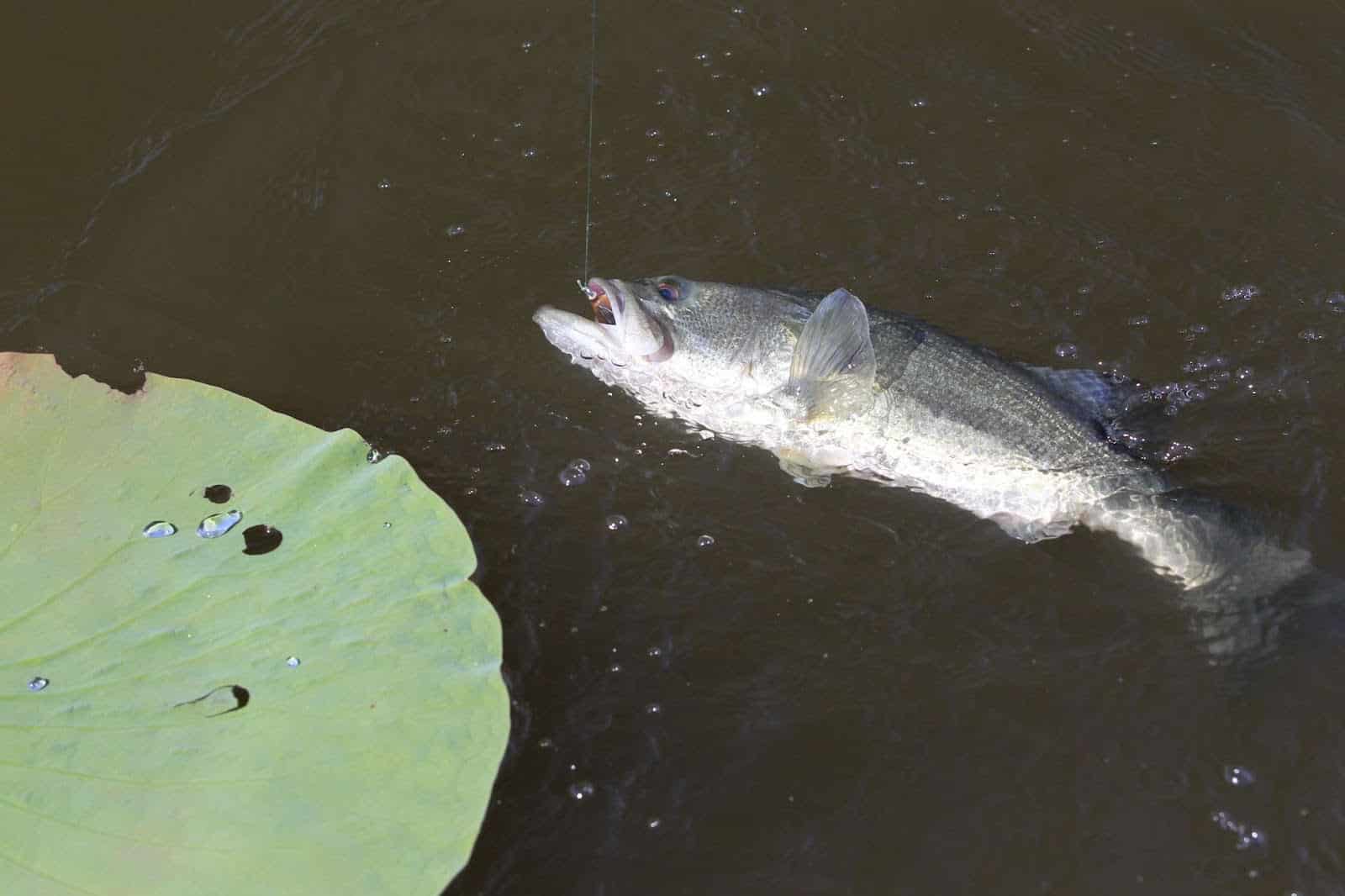
The issue isn’t only apparent in bass, either. Catfish, as tough as they are, still fall victim to low oxygen and parasites or viruses after they’ve fought for an extended period.
Maurice Jackson, Family and Community Fishing Program Coordinator for the Arkansas Game and Fish Commission, said he’s even received some reports of dead or dying catfish at some program ponds that are likely the result of post-release mortality.
“It hasn’t been widespread, nor has it affected a lot of fish in a particular body of water, which would indicate disease or water-quality issue,” Jackson said. “Instead, it’s been a handful of fish here and a single fish there. These fish were probably caught and released by a well-meaning angler, but they just couldn’t recover after a long fight at the end of someone’s line.”
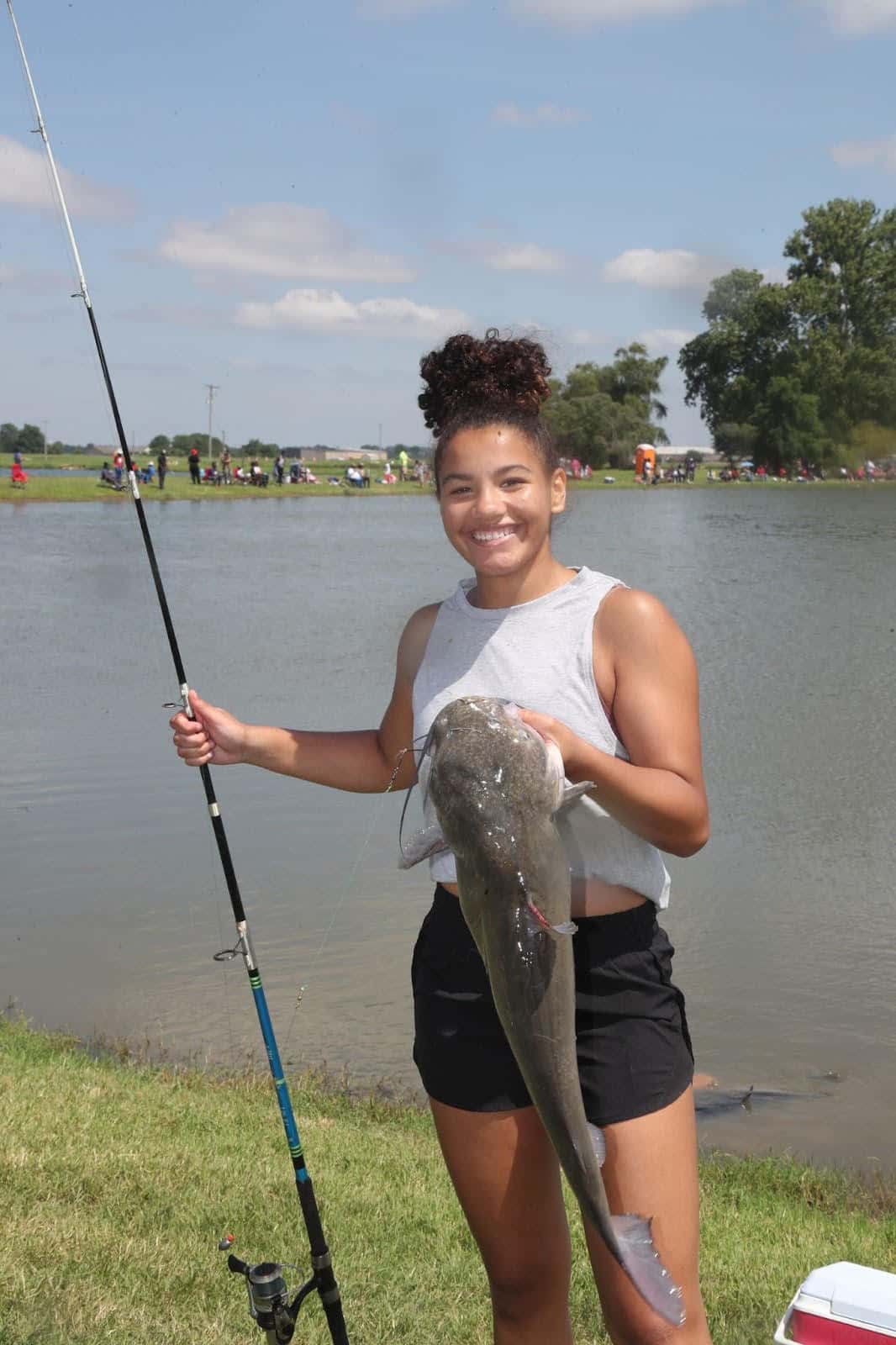
When ponds reach hot tub temperatures, Jackson suggests anglers would do more good by keeping the fish they catch and enjoying them for a fish dinner.
“The catfish we stock are raised by our hatcheries in pretty much the same way a commercial catfish farm raises their fish for the market,” Jackson said. “Those fish are way healthier to eat than something you’re going to pick up at a fast-food restaurant, and we stock hundreds of thousands of catfish in the state every year thanks to our four warmwater hatcheries. It’s not only OK to keep a few for the fryer, I encourage you to do it instead of releasing that fish after a good fight and it dying later.”
Anglers who don’t want to keep their fish can still do a few things to increase the likelihood of the fish recovering to fight another day. The first option is to limit fishing to the early morning when the water temperature is at its coolest.
Increase the size and strength of your gear to land fish as quickly as possible if you’re out in the heat. The longer the fish fights, the more stress it incurs. Land the fish, take a photo and send the fish back on its way as quickly as possible. Any fish that goes into a livewell or on a stringer should make the trip home with you, as even short rides in a livewell can cause fish to go belly up.
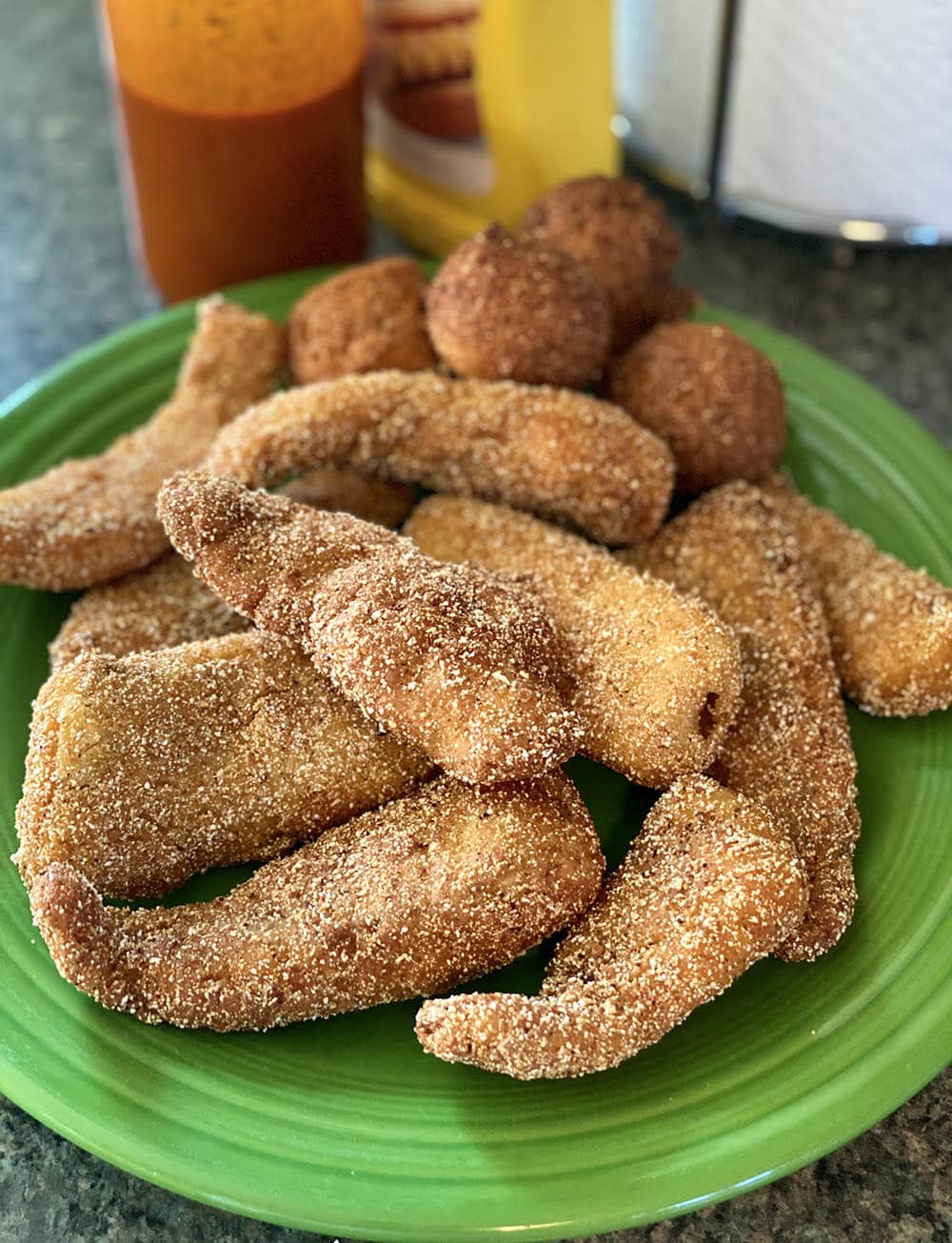
If the fish is hooked deeply, it’s best to cut your line as close to the hook as you can get without causing damage, and try to keep handling of all fish to a minimum. If the hook caused bleeding, do not pour any homemade concoctions or sodas on it, thinking it will stop the flow of blood. A scientific study published in 2021 disproved this old wives’ tale, so save the soda for sipping on the ride home from the lake. Simply placing the fish back in the water will stop the blood flow. Much like mammal blood contains platelets to cause it to clot and seal up injuries, fish blood is full of microscopic structures called thrombocytes. These structures work best in the water, so return the fish quickly if you aren’t going to keep it.
“Bottom line, you’ll actually be more conservation-minded if you keep the fish you catch and call it a day when you hit your limit than continuing to catch and release fish with a lower chance of survival,” Jackson said.
####
CUTLINES:
BASS RELEASE
Smaller fish have a decent chance of survival if released immediately after the catch. AGFC photo by Mike Wintroath.
BASS ON SIDE
Fish that have fought to exhaustion have a lower chance of recovery than those caught quickly. AGFC photo by Mike Wintroath.
CATFISH ANGLER
The AGFC stocks hundreds of thousands of catfish at Family and Community Fishing Program locations; it’s OK to keep a few. AGFC photo by Mike Wintroath.
FRIED FISH
If you know a fish will likely die after release, it’s best to bring them home for supper and share your catch with family and friends. AGFC photo by Randy Zellers.
Recent News
Subscribe to Our Weekly Newsletter E-mails
Don’t miss another issue. Sign up now to receive the AGFC Wildlife Weekly Newsletter in your mailbox every Wednesday afternoon (Waterfowl Reports are published weekly during waterfowl season and periodically outside the season). Fishing Reports arrive on Thursdays. Fill in the following fields and hit submit. Thanks, and welcome!


